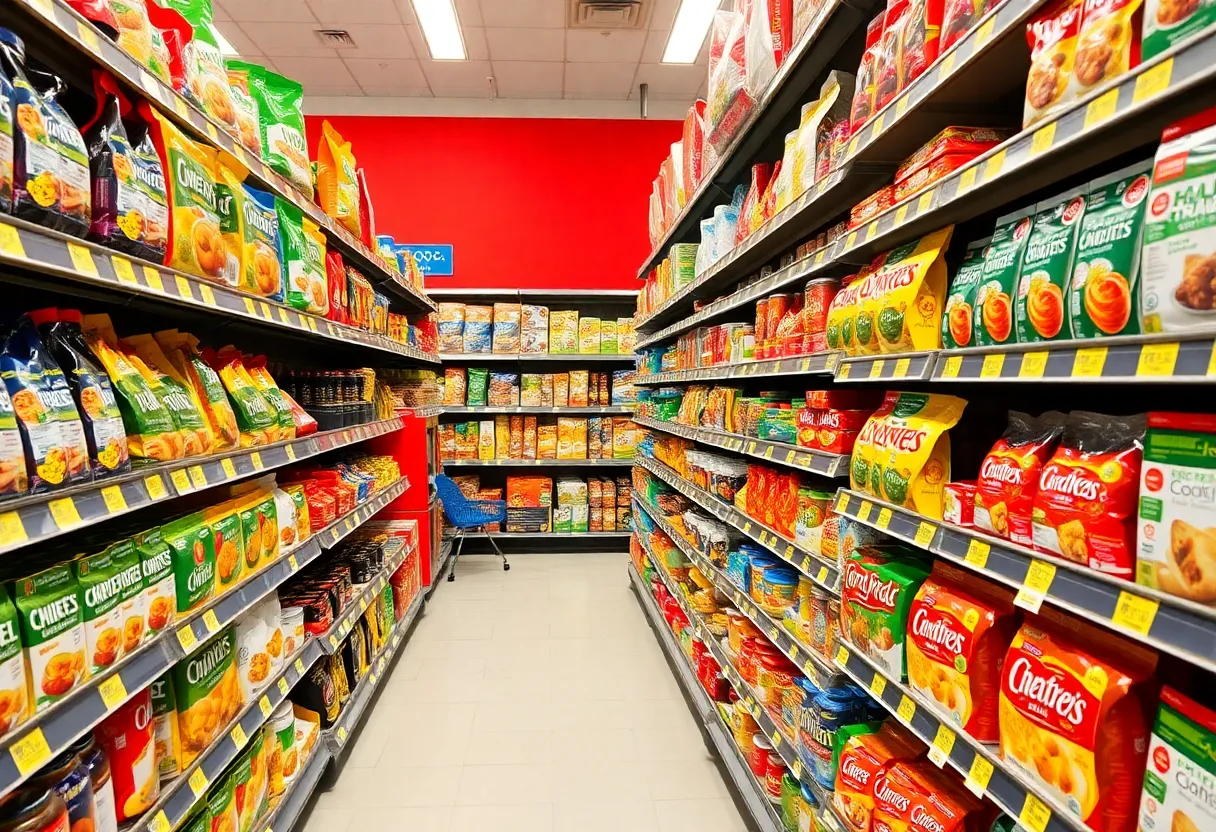News Summary
In response to rising chronic disease rates, U.S. federal agencies have initiated a collaborative effort to define ultra-processed foods. Spearheaded by HHS and USDA, this initiative includes a public Request for Information to create a standardized definition. Currently, ultra-processed foods comprise about 70% of packaged goods in the U.S., contributing to various health issues among Americans, especially children. The goal is to improve consumer education and regulatory approaches to enhance public health.
Washington, D.C. – Federal Agencies Move to Define and Regulate Ultra-Processed Foods Amid Rising Chronic Disease Rates
In an effort to combat the increasing prevalence of chronic diseases linked to poor diet, the U.S. government has announced a collaborative initiative to establish a clear definition of ultra-processed foods. Under the leadership of Health and Human Services (HHS) Secretary Robert F. Kennedy, Jr. and US Department of Agriculture (USDA) Secretary Brooke L. Rollins, the Food and Drug Administration (FDA) and USDA are accelerating efforts to address the health impacts of these foods.
Introduction of a Public Request for Information
The agencies have jointly issued a Request for Information (RFI), which seeks input from the public and industry stakeholders to develop a federally recognized definition of ultra-processed foods. This document, set to be published publicly in the federal register starting July 24, aims to gather data essential for establishing national standards. Currently, there is no single authoritative definition for ultra-processed foods in the U.S. food supply, leading to inconsistent labeling and understanding among consumers and policymakers.
Rationale Behind the Initiative
Both agencies highlight that ultra-processed foods account for approximately 70% of packaged products found in U.S. grocery stores. These foods include many snacks, sugary beverages, fast foods, and pre-made meals, which make up over 60% of the total caloric intake for American children. The increasing reliance on such foods is widely linked to a surge in health conditions, including cardiovascular disease, Type 2 diabetes, cancer, obesity, and neurological disorders.
Health Impacts and Urgency for Action
Scientific research indicates that the consumption of ultra-processed foods significantly contributes to the nation’s rising burden of chronic diseases. These foods are often high in sugar, unhealthy fats, artificial dyes, and preservatives, which have been associated with adverse health outcomes. The overconsumption of these products is recognized as a key factor in the childhood chronic disease crisis, with American rates of obesity and diabetes nearly double those seen in some European countries.
Goals for the New Definition
Establishing a clear, consistent definition is intended to facilitate research, regulation, and consumer education. A standard classification will help policymakers develop tailored strategies and nutritional guidelines to promote healthier food environments. Additionally, this move aims to improve transparency for consumers regarding the foods they purchase and eat, addressing widespread concerns about food additives and chemicals.
Government Initiatives and Future Research
The federal government, through the FDA and the National Institutes of Health (NIH), is also investing in high-quality research to better understand the health impacts of ultra-processed foods. The Nutrition Regulatory Science Program is a key component of this effort, supporting studies that could inform future regulatory and public health policies.
Industry Response and Public Sentiment
In light of these developments, food manufacturers are being urged to reduce the use of artificial dyes and other additives in their products. Many American adults express concern about food chemicals and synthetic ingredients, with surveys indicating that a majority believe these substances pose health risks. Despite increased attention to food labels, only a small percentage of consumers trust the information provided, highlighting the need for clearer, more reliable labeling strategies.
Context and Broader Implications
The U.S. faces a significant public health challenge, with dietary patterns characterized by high levels of sugar, fats, and ultra-processed foods. Comparatively, American diets are notably less healthy than those in many other wealthy nations, contributing to higher rates of obesity, diabetes, and related health issues. Policymakers are now discussing multi-faceted approaches—including regulatory measures, industry reforms, and public education campaigns—to reduce the consumption of ultra-processed foods and promote healthier eating habits across the population.
The federal efforts to define and regulate ultra-processed foods represent a critical step toward addressing the root causes of chronic disease and improving food quality and safety in the United States.
Deeper Dive: News & Info About This Topic
HERE Resources
Additional Resources
- Bloomberg: HHS and USDA on Ultra-Processed Foods Definition
- Healthline: Ultra-Processed Foods and Premature Death
- The New Yorker: The Deadly American Diet
- CNN: Hyperpalatable Foods and Wellness
- Vox: July Fourth and Ultra-Processed Foods
- Wikipedia: Ultra-Processed Foods
- Google Scholar: Ultra-Processed Foods
- Encyclopedia Britannica: Processed Foods
- Google Search: Ultra-Processed Foods Health Effects
- Google News: Ultra-Processed Foods
Author: STAFF HERE VIRGINIA BEACH WRITER
The VIRGINIA BEACH STAFF WRITER represents the seasoned team at HEREVirginiaBeach.com, your trusted source for actionable local news and information in Virginia Beach, Virginia Beach City, and beyond, delivering "news you can use" with comprehensive coverage of product reviews for personal and business needs, local business directories, politics, real estate trends, neighborhood insights, and state news impacting the region—supported by years of expert reporting and strong community input, including local press releases and business updates, while offering top reporting on high-profile events like the Virginia Beach Neptune Festival, East Coast Surfing Championship, and military homecoming celebrations, alongside key organizations such as the Virginia Aquarium, Virginia Beach Convention Center, and Oceana Naval Air Station, plus leading businesses in tourism and defense like Busch Gardens and Northrop Grumman, and as part of the broader HERE network including HEREWilliamsburg.com, providing credible, in-depth insights into Virginia's vibrant landscape. HERE Virginia Beach HERE Williamsburg





